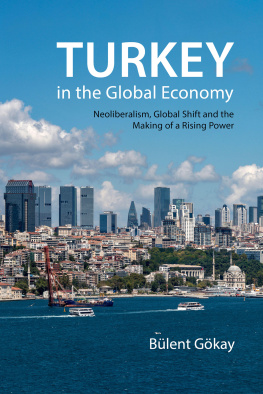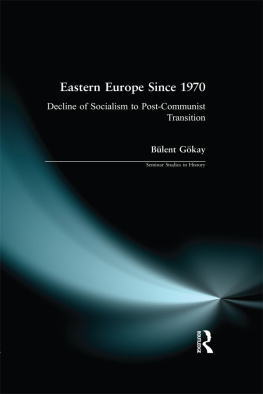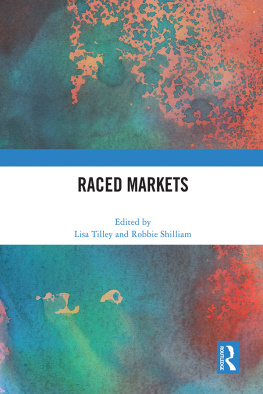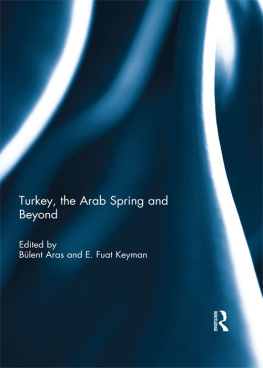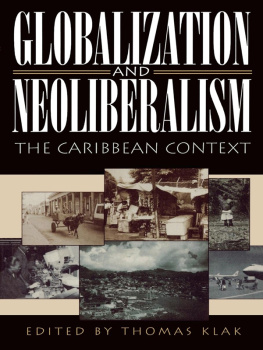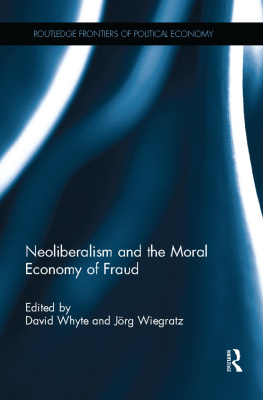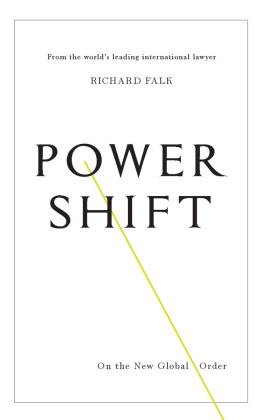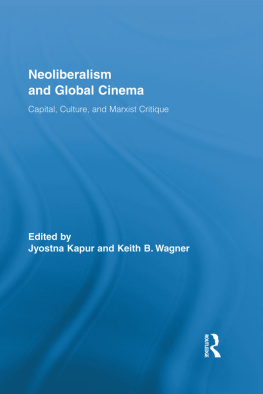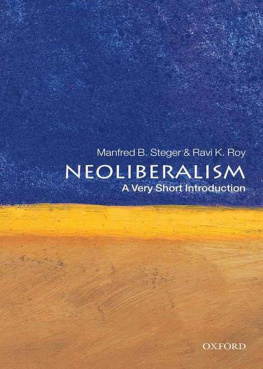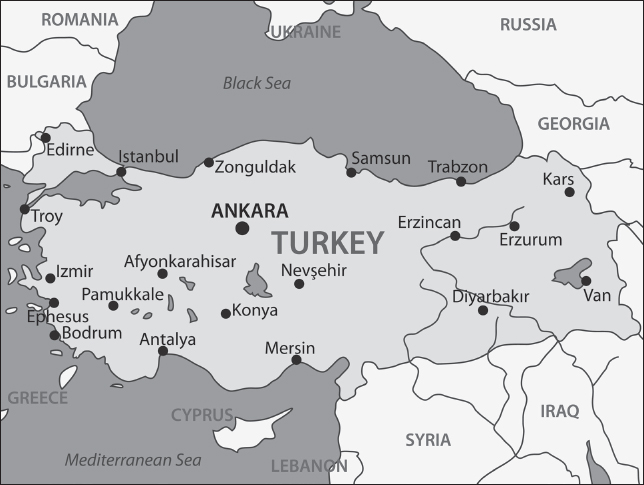Contents
Page List
Guide
Turkey in the Global Economy
Turkey in the Global Economy
Neoliberalism, Global Shift, and the Making of a Rising Power
Blent Gkay
McGill-Queens University Press
Montreal & Kingston Chicago
2021 by Blent Gkay
Published in 2021 by McGill-Queens University Press
Published simultaneously outside North America by Agenda Publishing
ISBN 978-0-2280-0411-0 (cloth)
ISBN 978-0-2280-0412-7 (paper)
ISBN 978-0-2280-0457-8 (ePDF)
ISBN 978-0-2280-0458-5 (ePUB)
Legal deposit first quarter 2021
Bibliothque nationale du Qubec
Library and Archives Canada Cataloguing in Publication
Title: Turkey in the global economy : neoliberalism, global shift, and the making of a rising power / Blent Gkay.
Names: Gkay, Blent, author.
Description: Includes bibliographical references and index.
Identifiers: Canadiana (print) 20200353780 | Canadiana (ebook) 20200353942 | ISBN 9780228004110 (hardcover) | ISBN 9780228004127 (softcover) | ISBN 9780228004578 (ePDF) | ISBN 9780228004585 (ePUB)
Subjects: LCSH: TurkeyEconomic conditions1960- | LCSH: TurkeyPolitics and government1980- |
LCSH: TurkeyEconomic policy. | LCSH: TurkeyForeign economic relations.
Classification: LCC HC492 .G65 2020 | DDC 330.9561dc23
Typeset by Patty Rennie
Printed and bound in the UK by TJ Books
Contents
Acknowledgements
I have so many people to thank for supporting me to complete this book. Steven Gerrard, of Agenda Publishing, who was superb in his role as editor, from start to finish. My thanks and gratitude also to Bev Sykes, for her meticulous proof-reading of the text. I am grateful to the two anonymous reviewers for their careful reading of the manuscript and for their insightful suggestions and comments. To my students on the Introduction to GPE and IR of Eurasia classes thanks for giving me the opportunity to discuss some of the ideas in our seminar sessions I learned much from you. My colleagues inside and outside of the academic world continuously encouraged, supported and challenged me. I would especially like to thank Vassilis Fouskas, Ben Fowkes, Darrell Whitman, Ismail Bykakan, Mmin Kseoglu, Ali Riza Aksoy and Mustafa Yasacan.
To my daughters, Ada, Leyla and Saira: I am forever grateful and thankful that I have been given the opportunity to be your father. You have made me better and more fulfilled than I could have ever imagined. I cannot begin to express my gratitude to Farzana, who is a rock and strength in my life, for your friendship, intellectual guidance, inspiration, warmth and generosity. I never thank you enough for being there for me unconditionally.
Source: Shutterstock.
Introduction
Turkey, with gross domestic product (GDP) of $754,412 billion, GDP per capita income of $9,042, a population of 83.9 million and an average annual growth rate of 5 per cent for the past 17 years, is a significant middle-range power, currently the nineteenth largest economy in the world, and a central regional player in the global system (World Bank 2019; Turkstat 2020). The first decade of the twenty-first century highlighted Turkeys rise as an emerging star in an unstable region that ran from the Balkans to the Middle East. Never colonized and straddling the continents of Europe and Asia, Turkeys strategically important location and dynamic young population have meant that it has a major influence in its neighbourhood and beyond. Turkeys location is important for its economic success and political prominence in the Middle East. Serving as a bridge between the European Union and the Middle East and wider Islamic world, Turkey is a major centre for commerce, finance and industry. It is a country that spans traditional NorthSouth and EastWest cultural divides, maintains a geographic focus on Africa and has increasingly central attention on post-Soviet states in the Caucasus and Central Asia. Turkey is not rich in fossil-based energy resources other than some high-sulphur and low-calorie coal, but it has significant levels of industry and a sizeable economy and is the only country in the region ranked among the top 20 economies of the world (World Bank 2009).
Many of Turkeys cities have been industrializing at a rapid rate and now participate in the global economy because of Turkeys location and young population, which both promote business and trade. Turkey has experienced one of the fastest rates of urbanization of any country in the world. Four of the worlds ten fastest-growing cities are in Turkey.
Despite serious adverse shocks since the 2008 global financial crisis and the tragic civil war in neighbouring Syria, Turkey has shown strong indications that its status as an emerging market economy will continue for the next ten years and beyond. Turkey is categorized as an upper-middle-income country by the World Bank because its per capita income is between $3,976 and $12,275 (Serajuddin & Hamadeh 2020). Turkeys pace of income convergence has been one of the most outstanding of the past two decades. In a 2018 Organisation for Economic Co-operation and Development (OECD) report, it was noted that labour productivity in the country exceeded that of several other catching-up OECD economies ( put Turkeys economy at number five according to its GDP (PPP).
Apart from the oil-rich Gulf States, Turkey is by far the wealthiest of the countries that emerged from the Ottoman Empire. Turkeys economy grew continuously from 2002 to the 2008 global crisis, and per capita income (based on purchasing power parity) and gross national product (GNP) have reached $11,000 and $750 billion, respectively. According to a report by Goldman Sachs, by 2024, Turkeys per capita income will climb to between $20,000 and $25,000 and Turkeys per capita national income is expected to surpass $30,000 in 2033 and $40,000 in 2040, reaching the $60,00065,000 level by 2050. According to the data compiled by Goldman Sachs, including the data in its world economic projection report, China is expected to become the worlds largest economy, with a nominal GDP of $70 trillion in 2050. It is predicted that the United States, India, Brazil, Russia, Indonesia, Mexico, the UK and Turkey will follow China in that order (Novron 2016).
Table 0.1Key socio-economic indicators
Socio-economic indicator |
Total population | 84,339,000 |
Annual population growth | 1.5% |
Population aged 1524 years | 13,116,000 |
Population aged 14 and younger | 20,119,000 |
Rural population (% of total population) | 26% |
Fertility rate (births per woman) | 2.1 |
Infant mortality rate (per 1,000 live births) | |
Life expectancy | |
Source: Unesco; http://uis.unesco.org/country/TR.
A global holistic perspective
The widespread failure to use a holistic perspective not only confines us to parochial views, but that these also seriously distort all regional, sectoral, and indeed temporal findings because they fail to fit these findings into the global scheme of things The same procedure and narrow parochialism have been even more characteristic of the exceptionalism and exaggerated sense of uniqueness.

